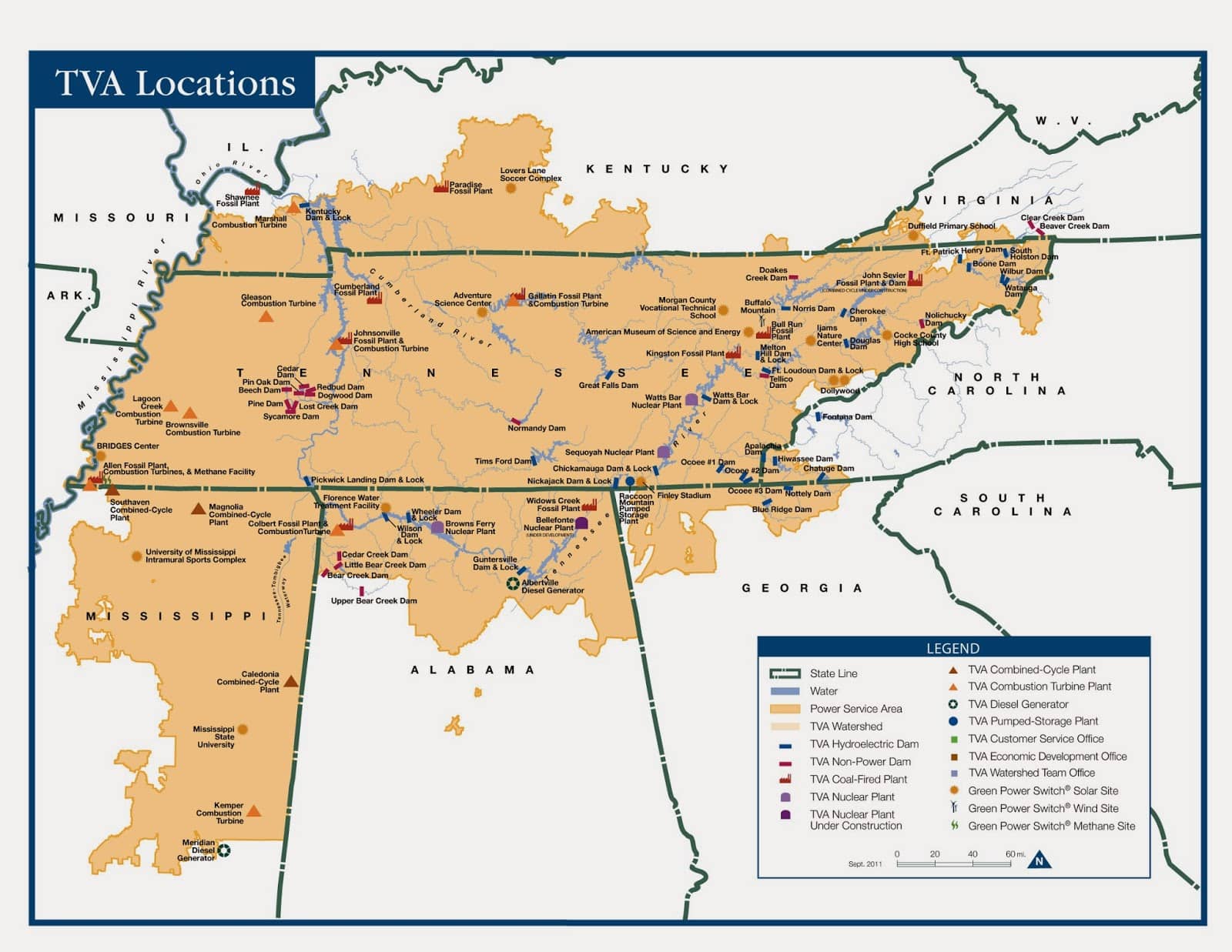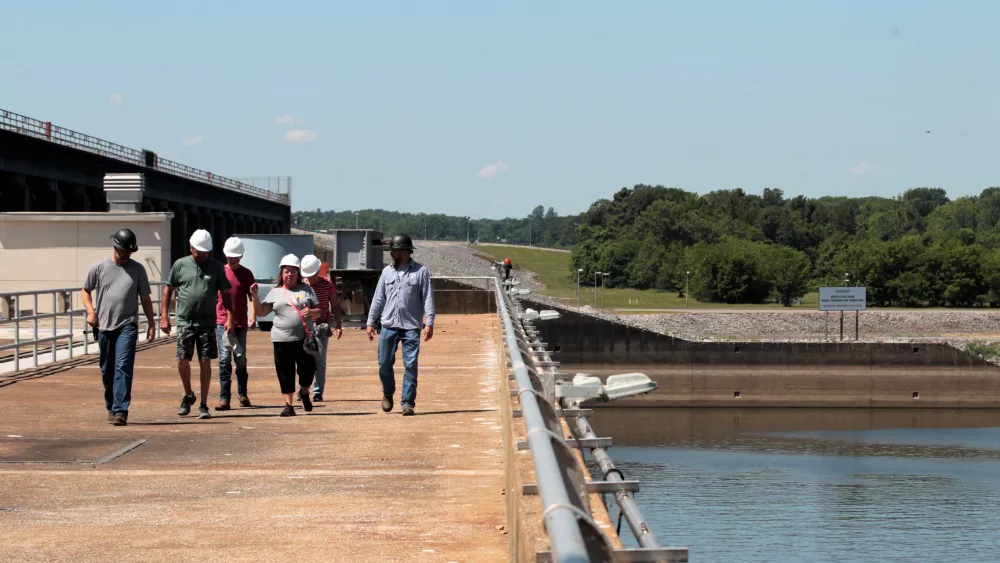
For the first time since the national attacks of September 11, 2001, local media and randomly selected applicants got a more intimate, sensory-filled look at Kentucky Dam Friday morning — as part of a 90-year birthday celebration for the Tennessee Valley Authority.
Roughly 200 feet tall and stretching more than a mile across the Tennessee River, the hydroelectric centerpiece generates more than 180 megawatts for local and regional customers. It took six years to complete, and in 1945 — less than a month after the end of World War II — its units went online, and its 1.35 million cubic yards of concrete were blessed by President Harry S. Truman.
Today, its five turbines hum at a pitch-perfect 78 RPMs — just like those old jazz and blues vinyls do on a turntable — bringing current to thousands of homes and businesses across the southeastern flood plain.
Laura Smith, with TVA Communications, recounted the tale of TVA’s more humble beginnings. A senator from Nebraska, it was George Norris who is credited with the construct’s concept — providing flood control, waterways travel and energy for a region drained by the winding Tennessee.
Smith noted Congress and the U.S. Army Corps of Engineers had already been fancying over what was then a new dam in Muscle Shoals, Alabama, alongside a steam and nitrate plant.
When Henry Ford, inventor of the assembly line, took interest in expanding his automotive empire in this region, Congress instead opted for a “people first” approach.
Kentucky Dam has 11 cross-trained, multi-faceted employees overseeing its entire operation.
One of them, KT Duffy, is the hydro plant manager. He’s from Mayfield, has been at the facility the past four years and started his career as an electrician for TVA.
Describing the facility’s governor cabinet, he noted that as oil builds up pressure, air compression creates more than 300 pounds of force, which then assists in the closing of gates and blades.
Once they hit “start” on a turbine, there’s a two-minute delay before a 90-second ramp up, pushing electric current from 0 to 45 megawatts in quick fashion.
A loud siren airs both inside and outside the dam — alerting staff, and sometimes crazy boaters trying to catch that prized fat fish — that the turbines are churning.
Duffy told visitors that the recent heights of the Ohio River have forced different procedures on the Tennessee River.
There was no reason for a blasting spillway Friday, as recent lower rainfall totals have kept those operations at bay. However, the replacement of turbines will soon be on the calendar. Duffy said the last time one had been refitted was 2000, and with a 20-to-25 year shelf life, he said a key capital overhaul is in the three-year window.
A former employee of Paradise in Muhlenberg County, Scotty Davis noted the river system has at least one advantage over coal energy: the ability to power up and down much more efficiently.
Furthermore, TVA is more than just electricity.
Kentucky Lock, just next door, has construction underway through the U.S. Army Corps of Engineers. In conjunction with a 600-foot lock comes a 1,200-foot lock, which will allow longer barges to avoid uncoupling, expediting shipping times.

No data found.






